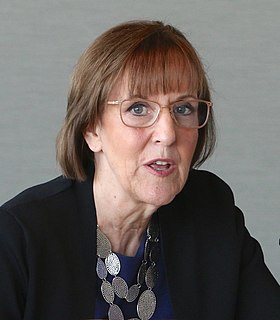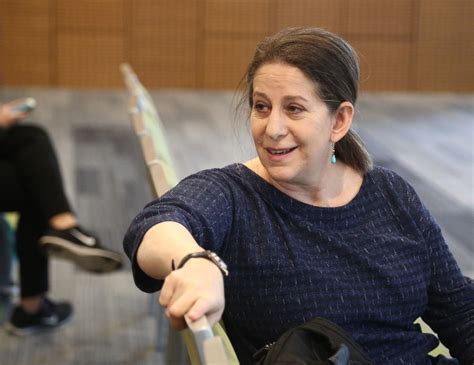A Quote by Dan Pallotta
You used to be able to just call people. You didn't have to be on someone's calendar to have a phone conversation. The telephone was an important and valuable domain of communication, both for casual, friendly chats and for professional exchanges of ideas and information. But no more.
Related Quotes
I'm a huge proponent of exchanges, student exchanges, cultural exchanges, university exchanges. We talk a lot about public diplomacy, .. It's extremely important that we get our message out, but it's also the case that we should not have a monologue with other people. It has to be a conversation, and you can't do that without exchanges and openness.
I lost my phone and I just really didn't look for it. It was the nicest feeling, like six weeks. ... A couple of times I needed to use a telephone, and I was always able to touch someone that had a telephone and say, "Hey, can I use your phone? May I please?" And they'd say, "Sure." And that was it! So it was OK, it was a real vacation. I took a real vacation from myself.
Internet becoming accessible everywhere, whether it was Wi-Fi at work, on your cell phone as you traveled. People had it at home with broadband. There was a big change.It used to be people used the Internet primarily at work, because that's where they had a good connection. Now they're using it at home. And the second big change is, they used it not just to get information, but to communicate with one another. And, so, it became not simply an information exchange, but a personal exchange, a communication mechanism.
When it comes to telephone calls, nobody is listening to your telephone calls. That's not what this program is about. ... What the intelligence community is doing is looking at phone numbers, and durations of calls; they are not looking at people's names and they're not looking at content. ... If the intelligence committee actually wants to listen to a phone call they have to go back to a federal judge, just like they would in a criminal investigation.
Effective communication is fascinating to me yet bad communication is just as fascinating. There are lessons to be learned from both. I can't say I am a natural communicator, it's taken a lot of work to be able to develop content relevant to the audience and deliver it with credibility. My initial natural ability tended to be more around the visual display of information. For years I was more comfortable visualizing other people's great thinking. I preferred to be hidden behind the curtain than a thinker myself.
One of my all-time favorite pranks was gaining unauthorized access to the telephone switch and changing the class of service of a fellow phone phreak. When he'd attempt to make a call from home, he'd get a message telling him to deposit a dime, because the telephone company switch received input that indicated he was calling from a pay phone.
There's a lot of health information available on your smart phone. There's financial information. There's your conversations, there's business secrets. There's an enormous long list of things that there's probably more information about you on here than exists in your home, right. Which makes it a lot more valuable to all the bad guys out there.



































